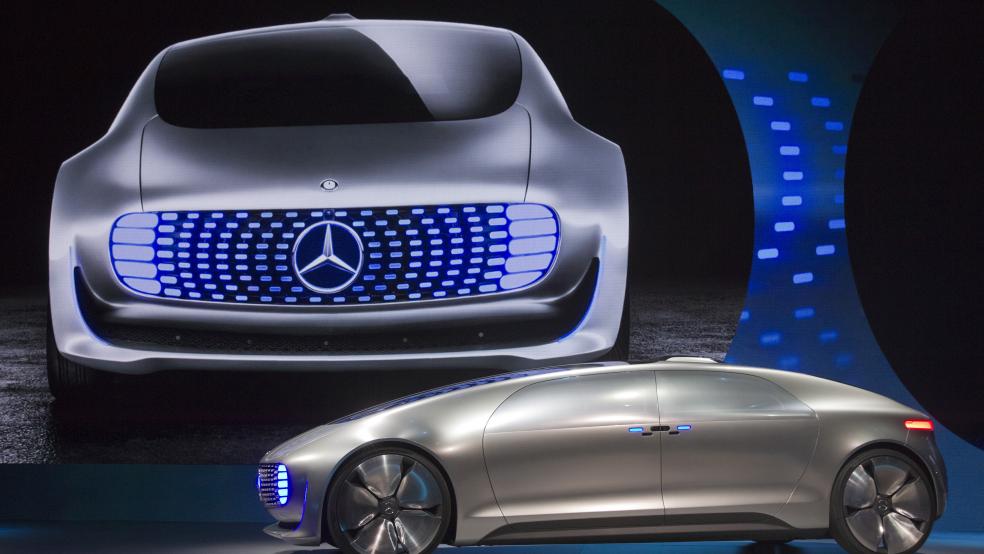Germany's Daimler AG wants to reset consumers' expectations about self-driving cars with its futuristic Mercedes-Benz F 015 concept, unveiled Monday evening at the annual Consumer Electronics Show in Las Vegas.
"Anyone who focuses solely on the technology has not yet grasped how autonomous driving will change our society," said Daimler Chief Executive Officer Dieter Zetsche, one of this year's keynote speakers at CES. "The car is growing beyond its role as a mere means of transport and will ultimately become a mobile living space."
Related: The Race to Win the $50B Connected Car Market
Until now, automakers such as Daimler and Volkswagen AG's (VOWG_p.DE) Audi have largely focused on developing automated systems, including braking and steering, that make cars safer and easier to operate.
The F 015 luxury sedan concept, with its spacious cabin and lounge-like seating for four, explores new possibilities for self-driving cars that can double as virtual living rooms on wheels. And in keeping with Mercedes tradition and the concept's "luxury in motion" theme, the post-modern passenger space is trimmed in walnut veneer, nappa leather, polished aluminum and glass, with soft blue LED lighting.
The F 015 can be operated autonomously or manually. When the vehicle is in fully driverless mode, the four motorized lounge chairs can be rotated to allow face-to-face conversations. When required for manual operation, the driver's chair swivels back to face forward.
To facilitate connectivity with the outside world, the F 015 is equipped with six digital display screens throughout the cabin. The screens can be activated via gestures, eye-tracking or touch.
Related: Google's Driverless Car - A Chaffeur for Bad Drivers
Mercedes wrapped all that fancy hardware and software in a lightweight, impact-resistant structure of carbon-fiber, aluminum and high-strength steel. The concept was also designed to accommodate an electric motor and hydrogen fuel cell.
The F 015 represents a huge leap forward conceptually and stylistically from the Mercedes-Benz S 500 Intelligent Drive research vehicle that piloted itself on a 100-kilometer journey from Mannheim to Pforzheim in August 2013.
The 2013 journey, made in a specially modified S-Class sedan equipped with various automated systems, traced the path driven 125 years earlier by Bertha Benz, wife of company co-founder Karl Benz, in one of the world's first gasoline-powered automobiles.
Mercedes currently equips several of its production vehicles with a variety of semi-automated systems, including parking assist, traffic jam assist and steering assist. The company's forward vision, embodied in a project titled "City of the Future 2030+", sees self-driving cars as a springboard for redesigning traffic-dense urban spaces with unique "safety" zones accessible only by autonomous vehicles.


